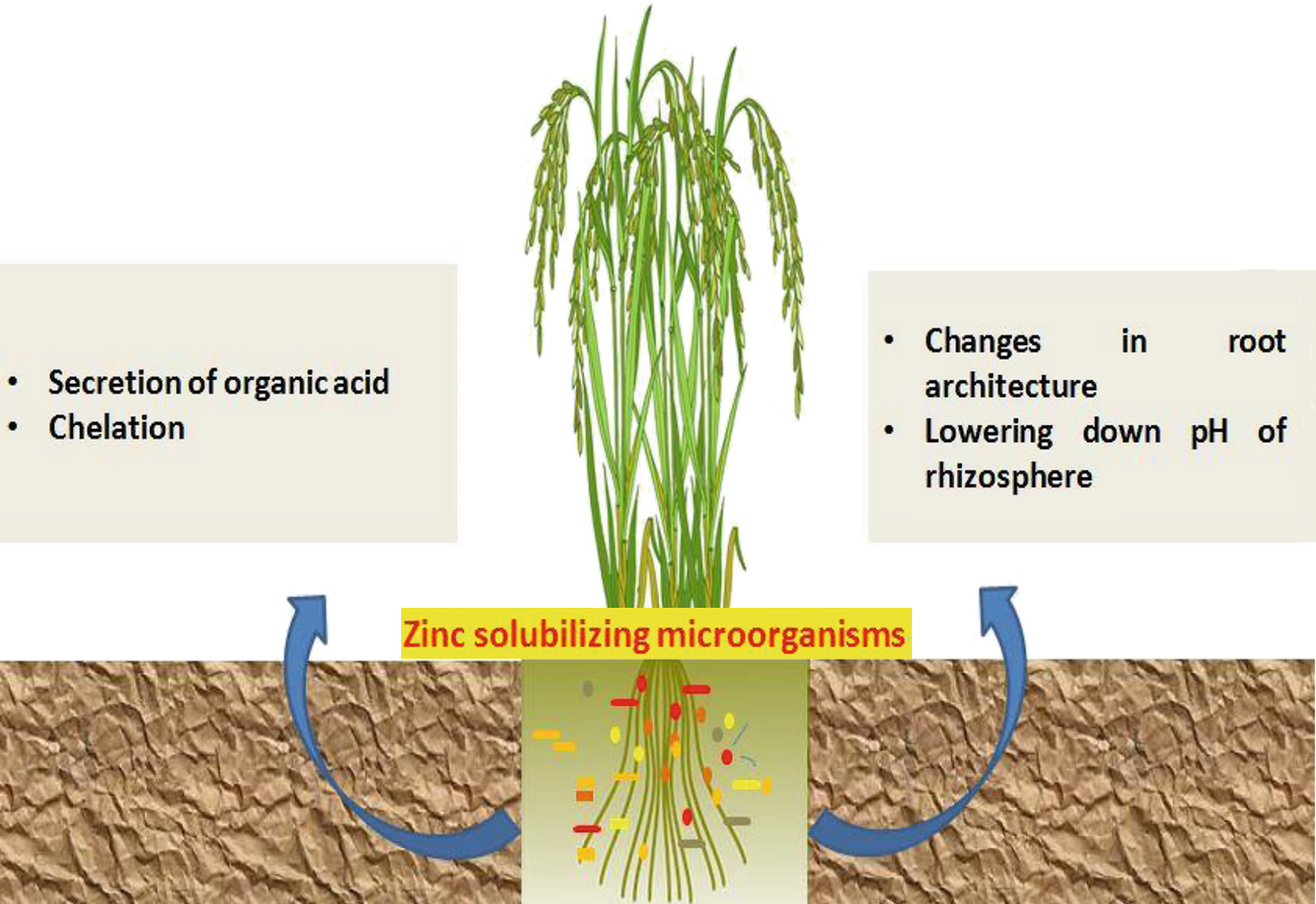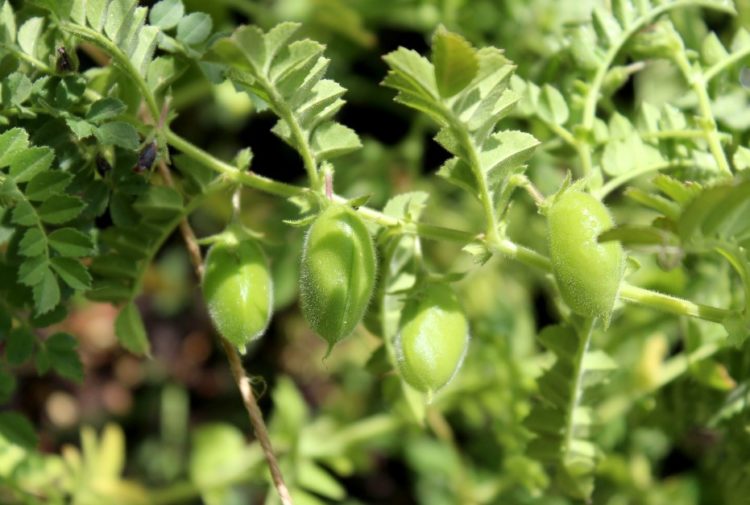- Zinc is an essential micronutrient required for plant growth. But it remains unavailable in the soil, which the plants cannot easily use.
- There is a 50% zinc deficiency in India’s arable land. This micro element is helpful in controlling ‘Khaira disease’ in paddy and white bud disease in maize crop.
- Adding zinc-solubilizing bacteria to the soil has several advantages, such as the continuous supply of available zinc, improving fertilizer use efficiency, crop yield, yield quality, improving soil health and increasing hormone activation.
- Zinc soluble bacteria produce organic acids in the soil, causing the unavailable state of zinc to convert the available material to the plants, besides maintaining the pH balance of the soil.
- At the time of last ploughing or at the time of sowing, 4 tonnes FYM or compost should be used by mixing 2-4 kg of zinc soluble bacteria in crops and dispersing it in one acre field.

Gramophone



